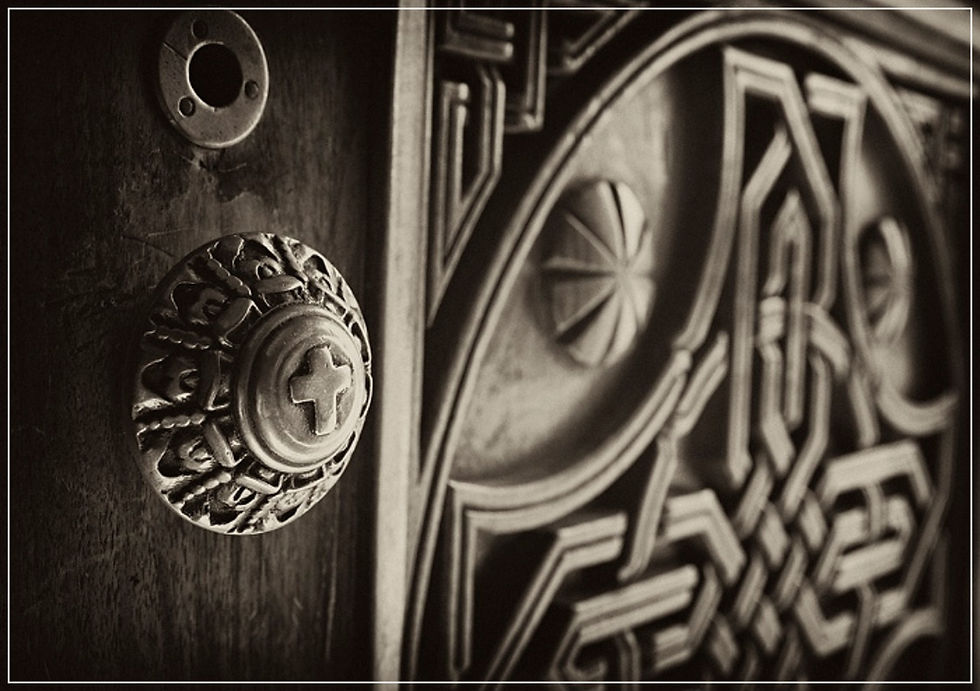
St. Gregory of Tatev, or Grigor Tatevatsi (Armenian: Գրիգոր Տաթևացի) (1346–1409 or 1410) was an Armenian philosopher, theologian and a saint in the Armenian Apostolic Church. His rich legacy of theological works, such as the Book of Questions, and his many commentaries on scripture, have been compared with the work of the twelfth-century Roman Catholic scholastic St. Thomas Aquinas.
“The door has ten functions: First, we enter and exit through the door; Second, it is the entranceway*; Third, it is an entrance for all; Fourth, it opens and closes; Fifth, it keeps inside those who enter; Sixth, it is a direction; Seventh, it is a narrowness; Eighth, it is humility; Ninth, it is a height; Tenth, we enter through it one foot foremost.
There are six doors: First, Christ, as He says: “I am the door” (John 10:9) Second, the Law [the Old Testament for the New Testament]; third, the Holy Church, as it says: “The Lord loves the doors of Zion” (Psalm 87:2); Fourth, the birth and the death are doors to the eternal life; Fifth, the senses of the souls are doors; Sixth, faith and baptism are doors into good deeds.
There are four types of narthex** (sheepfold): First, the physical environs; Second, the old synagogue is a narthex to our new Church; Third, visible Church is a narthex to the heavenly Jerusalem, according to the psalm: “they flourish in the courts (narthex) of our God.” (Psalm 92:13b); Fourth, the waiting room of the souls is a narthex into the glory of the Kingdom of Heaven. Having this in mind, we build the narthexes of our Churches on the south side, because the souls rest in the light and the warmth of God’s love.
There are four sheep in the rational flock: First, heavenly hosts; Second, the human race, according “to the sheep have gone astray” (Isaiah 53:6); Third, the Jewish community as it says, “you who lead Joseph like a flock!” (Psalm 80:1); Third, the Christian community, according to verse: “Feed my sheep.” (John 21:16).
And there are four doorkeepers: First, Holy Spirit is called a doorkeeper; Second, Moses and other prophets; Third, patriarchs and the doctors (vartabeds) of the Church; Fourth, the rational mind, as it says: “and commands the doorkeeper to be on the watch.” (Mark 13:34)”
*A door in Greek “thura” refers to “entrance, passage, way, the door of the kingdom of heaven, the name Who brings salvation.” Strong’s Greek Lexicon defines door as “portal or entrance” (the opening and the closure); gate.”
** Narthex, in Armenian Gavit, is an antechamber, porch, or distinct area at the western and sometimes at the south entrance of the Armenian Churches and Monasteries, separated off by a railing and used by catechumens, penitents, etc.
Translated by Fr. Mesrop Parsamyan
St. Gregory of Tatev, Commentary on the Gospel of John. Սուրբ Գրիգոր Տաթեւացի, Մեկնութիւն Յոհաննու Աւետարանին, Մայր Աթոռ Սուրբ Էջմիածնի հրատարակչութիւն, 2005 թ. էջ 415: